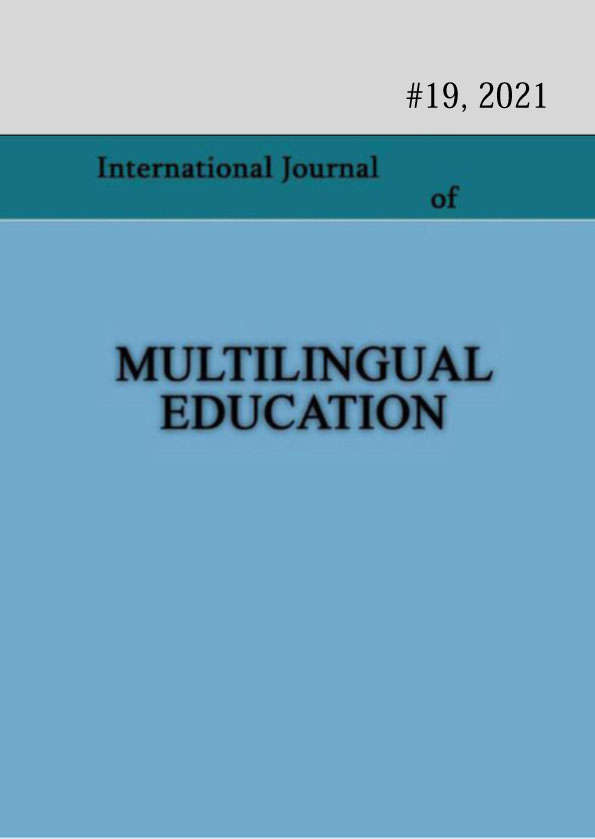Word Meaning, Androcentrism, and Language Acquisition (Based on a survey of English proverbs)
Keywords:
androcentrism, English as L2, proverbs, surveyAbstract
In our days second language acquisition is not just an option but rather a necessity, particularly, when it is about English which is a global lingua franca. It is a permanent process involving consideration both of constantly updating methods and techniques and novel approaches to various aspects of language. Given the intensified discussions of the androcentric nature of some aspects of English and of the so called he/man approach, I decided to check whether and how similar phenomena may evolve among Georgian learners of English. For the sake of this goal, I conducted the following survey.
The object of the survey was the dual meaning of the word man in English proverbs. The word referred either to “a male person” or “a person in general.” The survey was conducted in a group of 10 students.
The students got a survey file while being on the online meeting. The language of the meeting was English. After having read all the proverbs, the students were to write “a male person” or “a person in general” at the end of each proverb. If they were unable to distinguish between the meanings, they could write “I cannot guess.”
The paper presents the results of the survey with an emphasis on the students’ capability of distinguishing between generic and masculine meanings of the word in question and on related linguistic and didactic implications.
References
Bodine, A. (1975). Androcentrism in prescriptive grammar: singular ‘they’, sex-indefinite ‘he’, and ‘he or she’>> Language in Society 4, 1975: 129-146.
Khakhiashvili, N. (2009). K’ac-sit’q’vis ist’oriisatvis [On the history of the word k’aci (man)] kartvelur enata st’rukt’uris sak’itkhebi [issues of the structure of Kartvelian Languages], 10: 285- 307.
Kikvidze, Z. (2011). New Approaches to Gender Issues in Text-based Analyses: Georgian Printed Media in Context. Languages and Cultures in the Caucasus, ed. By V.S. Tomelleri, M. Topadze, A. Lukianowicz. Munich & Berlin: Verlag Otto Sagner: 398-393
Kikvidze, Z. (2015). The English man and The Georgian k’aci: An Outline of (dis)similarities. In D.Gay Sylvestre (ed),II, Elle: Entre Je(u) 17-25 Limoges: PULIM: Presses Universitaires de Limoges.
Martin, P. Papadelos, P. (2016). Who stands for the norm? The place of metonymy in androcentric language. SocialSemiotics, Routledge Taylor & Francis Group.
Martyna, W. (1980). Beyond the “He/Man” Approach: The Case for Nonsexist Language.
Signs Vol.5, No 3. The university of Chicago Press:482-493
Rayfield, D. (ed.-in-chief) (2006). A Comprehensive Georgian-English Dictionary, Vol.1 London: Garnett Press.
Simpson, J. Speake, J. (1999). Concise Dictionary of Proverbs. Oxford University Press.
Downloads
Published
How to Cite
Issue
Section
License
Copyright (c) 2021 Ana Lemonjava

This work is licensed under a Creative Commons Attribution-NonCommercial 4.0 International License.
Copyright (c) - Authors who publish with this journal agree to the following terms: Authors retain copyright and grant the journal the right of first publication with the work simultaneously licensed under a Creative Commons Attribution-Noncommercial 4.0 International License, which allows others to share the work with an acknowledgement of the work's authorship and initial publication in this journal. Authors are permitted and encouraged to post their work online (e.g., in institutional repositories or on their personal website) prior to and during the submission process, as it can lead to productive exchanges, as well as earlier and greater citation of published work (see The Effect of Open Access). Authors may enter into separate, additional contractual arrangements for the non-exclusive distribution of the journal's published version of the work (e.g., post it to a repository or publish it in a book), with an acknowledgement of its initial publication in this journal.

